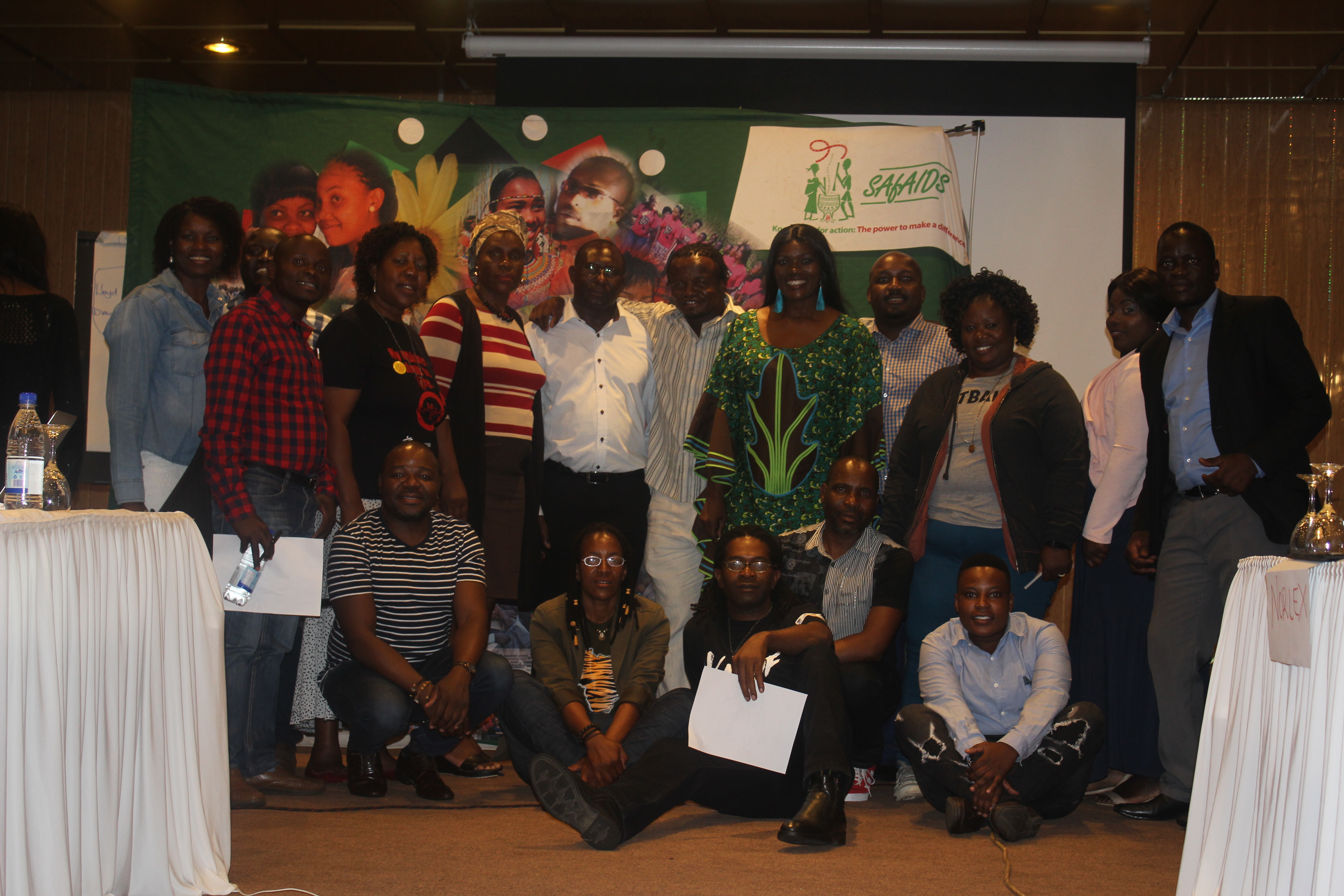By Joyce Mukucha
The Southern Africa HIV and AIDS Information Dissemination Service (SAfAIDS) is encouraging stakeholders to take concrete steps towards ensuring that there is scaling up of Universal Health Coverage (UHC) in Zimbabwe especially for the key population groups.
The organisation held a workshop aimed at ensuring that in a lower middle income country like Zimbabwe, strengthened UHC delivery is attained as well as guaranteeing that quality healthy for everyone is accessed without financial hardships.
UHC includes the full spectrum of essential, quality health services from health promotion to prevention, treatment, rehabilitation and palliative care.
The SAfAIDS PITCH Country Focal Person, Lloyd Dembure said there was need to increase knowledge and understanding of UHC including threats and opportunities of the UHC implications in Zimbabwe particularly for key vulnerable populations.
He was speaking at a UHC Call to Action Workshop in Harare on the 14th of November 2019, which was running under the theme; “Beyond Political Declaration: Taking Concrete Action Steps Towards UHC We Want.”
“There is need for new incorporated health priorities in ensuring that UHC becomes a reality. We need to go beyond political declarations and ensure that strong health systems prevail in our nation so that individuals and communities receive the health services they need without financial constraints. It can be noted that at least half of the world’s population still do not have full coverage of essential health services and about 100 million people are still being pushed into extreme poverty leading to unimproved access to quality health standards,” said Dembure.
He said it was imperative to consider Sustainable Development Goal 3 in the UHC agenda as it enables everyone to access the services that address the most significant causes of diseases and healthy lives and well- being for all.
Articulating on political elements of UHC outcomes and advocacy, the country coordinator for Pan African Positive Women’s Coalition, Tendayi Westerhof stressed that Governments should stop signing more political declarations without fulfilling those already on paper especially in the health sector.
She added that for the sake of equity, People Living with HIV (PLHIV) should become part of the UHC agenda and become part of the solution pertaining national health crisis.
“For UHC to be attained, as Civil Society Organisations, we urge that the government first need to fulfil the declarations and commitments that are already on paper before signing new ones. There is need to ensure that at country level, there is recognition and inclusion of women and children as well as significant stakeholders. In terms of advocacy concerning UHC, people in vulnerable communities that are impacted with HIV need to be capacitated with knowledge so that they take part in planning and implementation of health services ,”she said.
For Donald Tobaiwa, the Jointed Hands, ACT chairperson alluded to the fact that UHC should be taken to grassroots level and he indicated that there was need to push for action so as to achieve primary health care.
“It is our responsibility to impart information to do with UHC and SDGs to communities so that there is accountability, they need to be empowered so rather than engaging at national level there is need to include the grassroots societies. Also, follow ups with additional advocacy is of paramount importance in creating a conducive environment for key vulnerable groups.
“It is significant to make UHC a political priority with each country using its own tool to map a path for accessibility of quality health. As stated by the UHC, there is need to push for action pertaining the commitments so that there is strengthened primary health care. Because of lack of political wheel, everyone is being left behind and this need to end with immediate effect,” he said.
In her presentation at the workshop, Provincial Field Officer Zimbabwe National Network of People living with HIV the Evellyn Chamisa said due to economic challenges that are currently prevailing in Zimbabwe, the situation continue to be pathetic in as much as availability, accessibility and affordability of medication for key population groups is concerned.
Other representatives from Officer Zimbabwe National Network of People living with HIV( ZNNP+, ZiCHRE, and Zimbabwe Civil Liberties and Drugs Network (ZCLDN) among other CSOs who participated at the workshop raised issues that key population groups particularly PLHIV were still being stigmatised, discriminated and criminalised in various communities. As a way forward, they emphasised that it was of paramount importance to treat people who use drugs fairly to ensure that UHC becomes attainable.
Pertaining key challenges in financing UHC, there is still a huge gap between population declaration and concrete action that is lack of enforceability, accountability and willingness to prioritise health in the budget, lack of resources as well as deep rooted structural problems in inequality and weak health services.
On 23 September 2019 a high-level meeting on universal health coverage was held at the United Nations General Assembly. The meeting, ‘Universal Health Coverage: Moving Together to Build a Healthier World’, brought together heads of state, political and health leaders, policy-makers, and universal health coverage champions to advocate for health for all.






